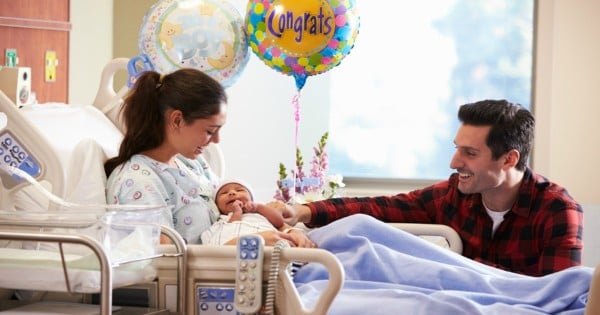Kat never knows how to answer the question of how many children she has. She has been pregnant nine times.
“If I count how many children I feed and clothe, my number remains a tiny two,” she says. “But each and every one of those nine pregnancies was a child that I am a mum to.”
One thing Kat has learnt from everything she’s been through is that the care given by the hospital means a huge amount to a grieving parent.
“Not just the mother, but the father as well,” she adds. “Small things can make all the difference.”
Kat lost her first baby, Darren, soon after the 18-week scan showed he had severe organ abnormalities. Her second pregnancy, sadly, ended in a missed miscarriage. Kat and her husband Shane debated whether it was all worth it, before deciding to try again. This time, they lost their daughter Zahra at 35 weeks, due to placental abruption.
Rebecca Sparrow reflects on the loss of her beloved daughter, Georgie. Post continues below.


Top Comments
The hospital I delivered at had a special ward and even a separate OR for losses sadly spent a lot of time there. The midwifes were very thoughtful and Dads were encouraged to stay over on a fold out bed. I ended up having a very bad time due to post partum bowel obstructions the worst part was when I was in agony worse than labour ever was and the midwife thought it was ok to tell me to stop screaming in pain as it would be depressing to the other grieving mums. When I was pregnant after 2 live and 2 miscarriages I got sick as heck and knew I wasn't going to carry the baby much longer and I got told not to be silly and put on a antenatal ward a week later the baby died it sucked. When my first baby was born 2 months early I was lucky to be in a hospital that put mum's who's babies would likely go to special care in side rooms where Dads could stay on a gold out bed if things were bad.
Poison IV - I am very sorry for your loss too. And how incredibly sad that you had to be dismissed for your fears and pain. I am heartened to read that some hospitals and staff have been encouraging and supportive. It makes all the difference!!! I experienced a loss and I was told by staff that I was lucky, already had plenty of kids so it didn't really matter, that it was nothing - only an early pregnancy, that it happens all the time - get over it, this was coming from multiple staff at a womens hospital. When I was misdiagnosed multiple times, then finally admitted, the ward doctor said "yours was a classic case, I would of picked it up so quickly". I asked "why was I treated so badly". Her reply floored me "we get a lot of hypochondriacs here". Great - a womens hospital that thinks the patients are hypos. On a better note, the next loss I suffered I had a medical person who was absolutely beautiful. To this day I will never forget his kindness and empathy and message of hope. All this coming from a man who was called in late at night/early morning on a long weekend. Great people make all the difference.
One week after I had miscarried the baby we had been trying for over 3 years for, I was admitted to hospital for an unrelated illness.
The hospital had no spare beds, and the only place they could find to place me was in the maternity ward, where I could hear women laboring and babies crying. I begged not to be taken there, but they insisted "it's the best place for you" - my (male) nurse even scoffed at me "you'll be ok, you have to face babies some time, they're everywhere. It's life".
I bawled as I was wheeled down the hallways to enter my room, and continued to sob and beg for them to find another bed in another ward. After a few (very long) hours of shuffling, my request was approved and I was moved.
My heart goes out to the ladies that have had no choice but to stay in the maternity ward, you are incredibly strong to endure that.
Jessica, so sorry for your loss and my heart breaks to know you endured that pain. Women should not be put in wards with labouring or post natal women when they are dealing with their loss, thank goodness you had the strength to advocate for yourself, it is a pity it wasn't a natural choice to put you somewhere more appropriate in the first place.